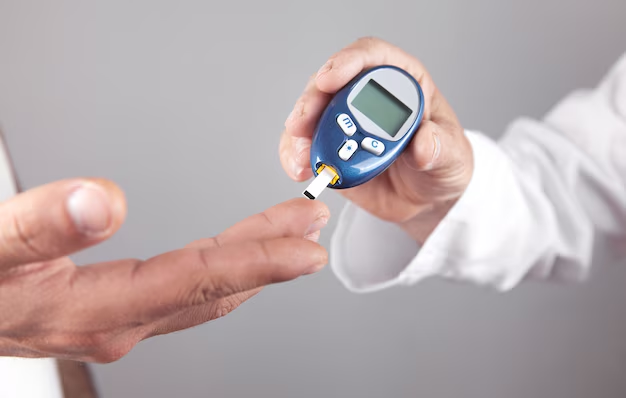Your Guide to Is Diabetes An Autoimmune Disease
What You Get:
Free Guide
Free, helpful information about Diabetes FAQ and related Is Diabetes An Autoimmune Disease topics.
Helpful Information
Get clear and easy-to-understand details about Is Diabetes An Autoimmune Disease topics and resources.
Personalized Offers
Answer a few optional questions to receive offers or information related to Diabetes FAQ. The survey is optional and not required to access your free guide.
Is Diabetes Really an Autoimmune Disease?
Diabetes is a chronic condition that impacts millions worldwide, affecting how the body processes blood sugar, but is it considered an autoimmune disease? Understanding this aspect can lead to better management and lifestyle adjustments, especially for those newly diagnosed or supporting a loved one with diabetes.
Understanding Diabetes Types
Type 1 Diabetes is indeed an autoimmune disease. In this condition, the immune system mistakenly attacks and destroys the insulin-producing beta cells in the pancreas. The destruction of these cells means that the body can no longer produce insulin, a hormone necessary for regulating blood sugar levels. People with Type 1 Diabetes require lifelong insulin therapy and must regularly monitor their blood sugar levels.
Type 2 Diabetes, on the other hand, is not classified as an autoimmune disease. It typically develops due to insulin resistance, where the body becomes less responsive to insulin and eventually cannot produce enough to maintain normal glucose levels. While genetics play a role, lifestyle factors such as diet, exercise, and weight play significant roles in the development of Type 2 Diabetes.
Why It Matters
Recognizing the differences between these two types is crucial, not just for treatment, but also for navigating the variety of support systems and resources available, some of which are driven by disease characterization. Type 1 Diabetes predominantly affects younger populations and calls for distinct educational and lifestyle support. Conversely, Type 2 Diabetes often requires interventions focusing on lifestyle modifications and education about diet and exercise.
Seeking Financial and Educational Assistance
Managing diabetes, particularly through lifelong medication and regular medical care, can become a financial burden. Fortunately, various resources exist to alleviate some of these pressures:
Government Aid Programs:
- Medicaid and Medicare: These programs help cover the costs for diabetes care, including insulin and medical supplies, for eligible individuals.
- Supplemental Nutrition Assistance Program (SNAP): Provides financial assistance to purchase healthy foods, vital for those managing Type 2 Diabetes.
Financial Assistance:
- Pharmaceutical Assistance Programs: Many insulin manufacturers offer savings cards or patient assistance programs to help with medication costs.
- Non-Profit Organizations: Groups like the American Diabetes Association can connect individuals to local resources offering financial support or low-cost medical supplies.
Debt Relief and Credit Solutions:
- Credit Counseling Services: These can help manage medical debt by consolidating bills and offering payment plans.
- Medical Expense Loans: Special loans designed to cover high medical expenses without overwhelming interest rates.
Educational Opportunities:
- Diabetes Self-Management Education and Support (DSMES) Programs: Often covered by insurance, these programs provide essential education about managing diabetes.
- Online Courses and Support Groups: Accessible platforms offering resources and community support, helping individuals to learn more about their condition at their convenience.
Exploring these resources not only enhances diabetes management but also offers peace of mind, empowering individuals to focus on their health without financial distress.
Quick Access to Resources
Here's a quick guide to help you navigate available resources:
- 🏥 Medicare/Medicaid: Coverage for necessary medical expenses, including diabetes care.
- 🥗 SNAP Benefits: Financial assistance for purchasing healthy food options.
- 💊 Pharma Programs: Discounts on insulin and diabetes medication.
- 🤝 Non-Profit Aid: Support from organizations dedicated to helping those with diabetes.
- 💳 Credit Counseling: Manage medical debt effectively.
- 🎓 DSMES Programs: Education tailored to diabetes management
- 🌐 Online Support: Resources and community for ongoing education and encouragement.
Navigating diabetes management involves understanding both the medical and financial implications, and being informed about available support can greatly ease the journey.
What You Get:
Free Diabetes FAQ Guide
Free, helpful information about Is Diabetes An Autoimmune Disease and related resources.

Helpful Information
Get clear, easy-to-understand details about Is Diabetes An Autoimmune Disease topics.

Optional Personalized Offers
Answer a few optional questions to see offers or information related to Diabetes FAQ. Participation is not required to get your free guide.


